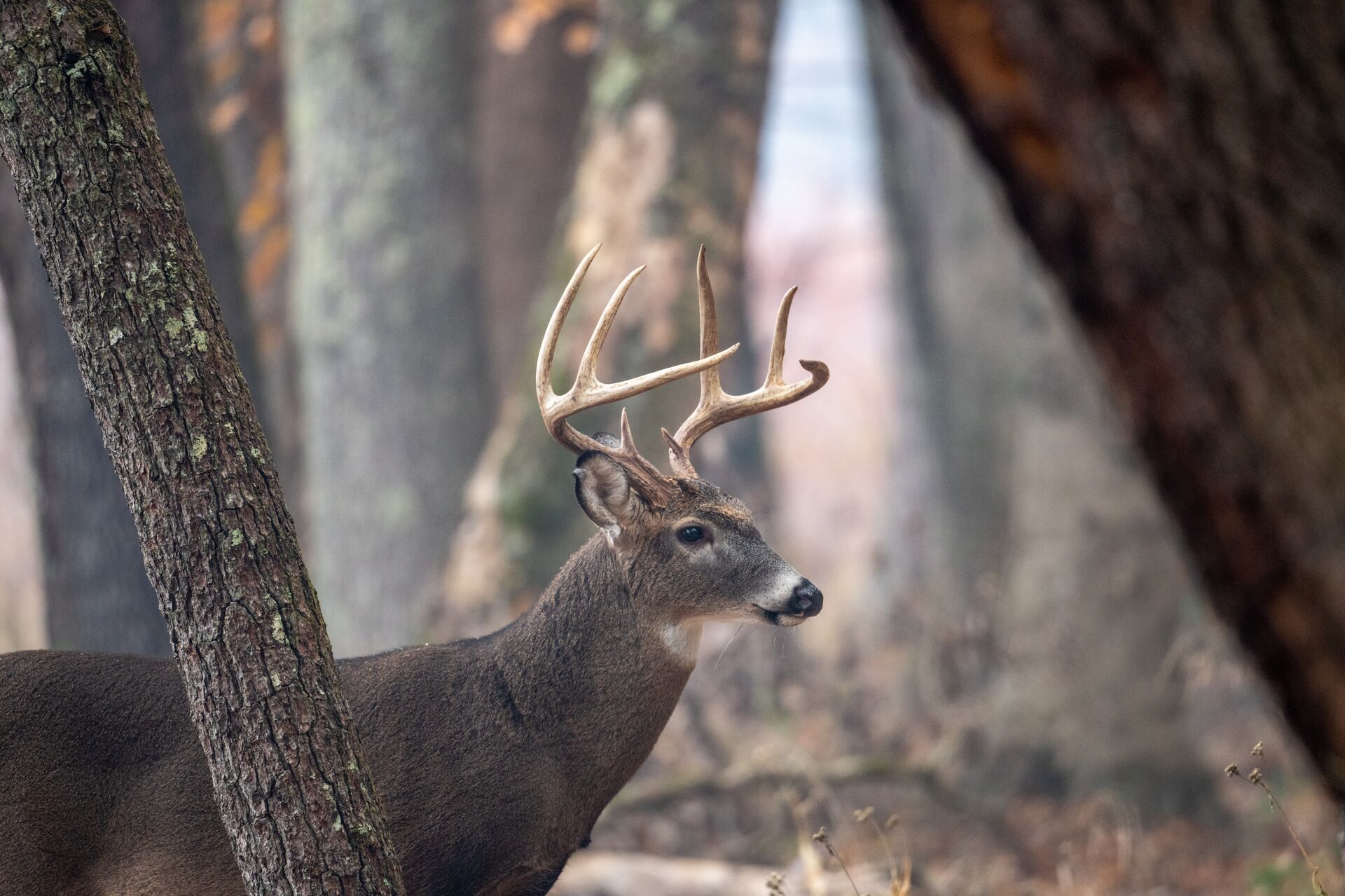Field Guide / Deer
How To Tag Out During the Ohio Deer Season
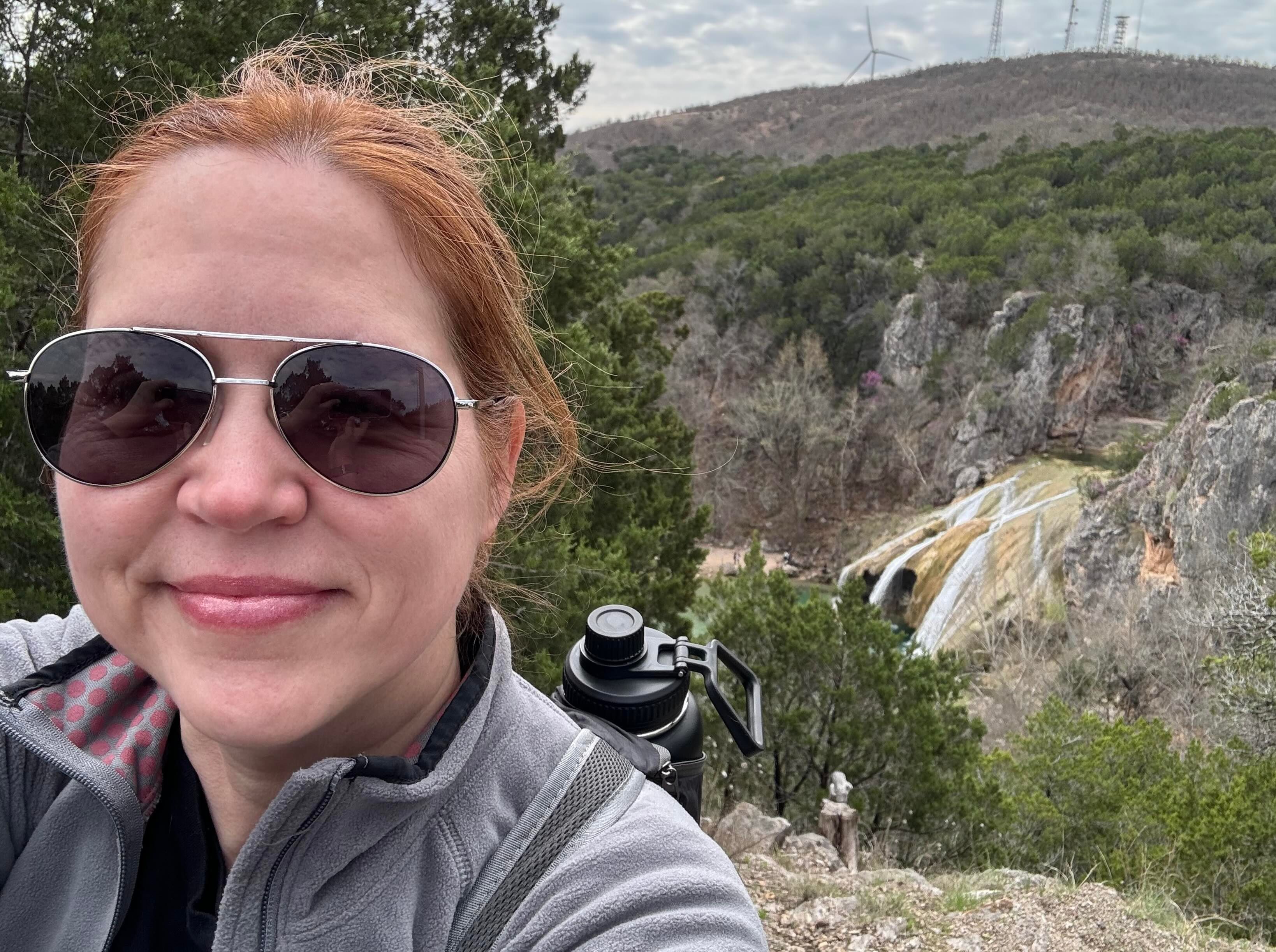
9 Minute Read
The Ohio deer season presents subsistence hunters with the opportunity to take home a considerable amount of free-range, organic venison and tag out across several different hunting zones. However, while there's ample opportunity, this doesn't mean your preseason preparation and hunting strategies can be anything less than spot on.
With the right combination of tools, local insights, regulatory knowledge, hunting strategies, and carefully honed skills, you'll skyrocket your chance of tagging out whether you're a local or coming in from interstate.
Are you ready for deer season in Ohio? Check out the following tips to help you fill those tags.
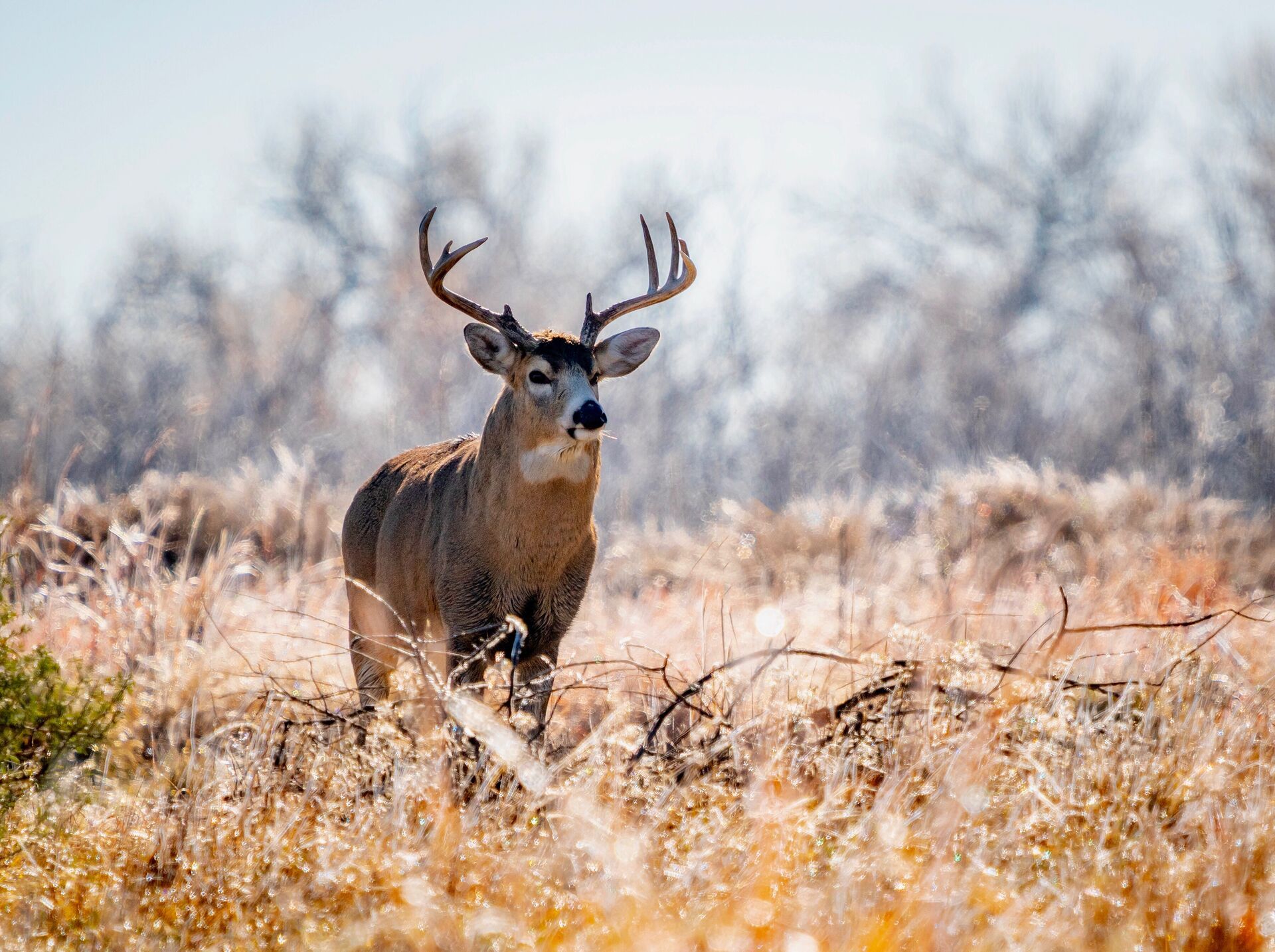
HuntWise-Recommended Strategies for Ohio Deer Season
The specific Ohio deer season dates will depend on your intended hunting zone, as each county has its own bag limit and regulatory requirements.
However, the statewide limit for deer is six, and hunters can fill their tag limit across several counties. Due to this, one of your first decisions should be which area to hunt and how this interplays with other county regulations or the impact if you decide to hunt private land.
Once determined, try the following strategies to maximize your chances of tagging out on well-conditioned deer.
Go Deep on Preseason Scouting
Preseason scouting involves using satellite and mapping imagery to target high-potential areas such as bedding spots, feeding areas, passageways, water sources, and mixed environments where deer like to hang out.
Once you find these areas — or what could potentially be these areas — using HuntWise, you can use this information to put together an in-person scouting plan to confirm deer signs, look for movement patterns, and start setting up trail cameras.
Consider the motivation behind the movement patterns, why the deer are moving to a particular place, and the likelihood that they will do it again.
Break Out the HuntWise App and Check Out HillShade
With the HuntWise app, hunters can leverage different mapping features, including 3D, topographical, and more, to better understand where and why deer are moving.
Our latest mapping layer update means we now offer LiDAR, a grayscale image that depicts surface elevation changes. It is generated from lidar data, creating a bare earth model that allows hunters to see topography without vegetation cover.
This layer (we call it Hillshade) provides, amongst other benefits:
- Pinpoint saddle crossings
- Uncover hidden bedding areas
- Gather elevated terrain perspective
- Determine pinch points
This unique mapping feature offers a comprehensive and user-friendly overview of the terrain, a valuable tool for hunters of all skill levels.
For hunters looking to take on a more advanced hunt, this feature can be used to find big buck bedding areas in swamps. Our LiDAR access reveals swamp islands that aren't easily seen on other map providers. It can also reveal hidden ridges that may accompany a transition line. These ridges do not show up in other map layer types.
Despite its seemingly minor nature, these factors can differentiate between a successful hunt and an empty freezer.
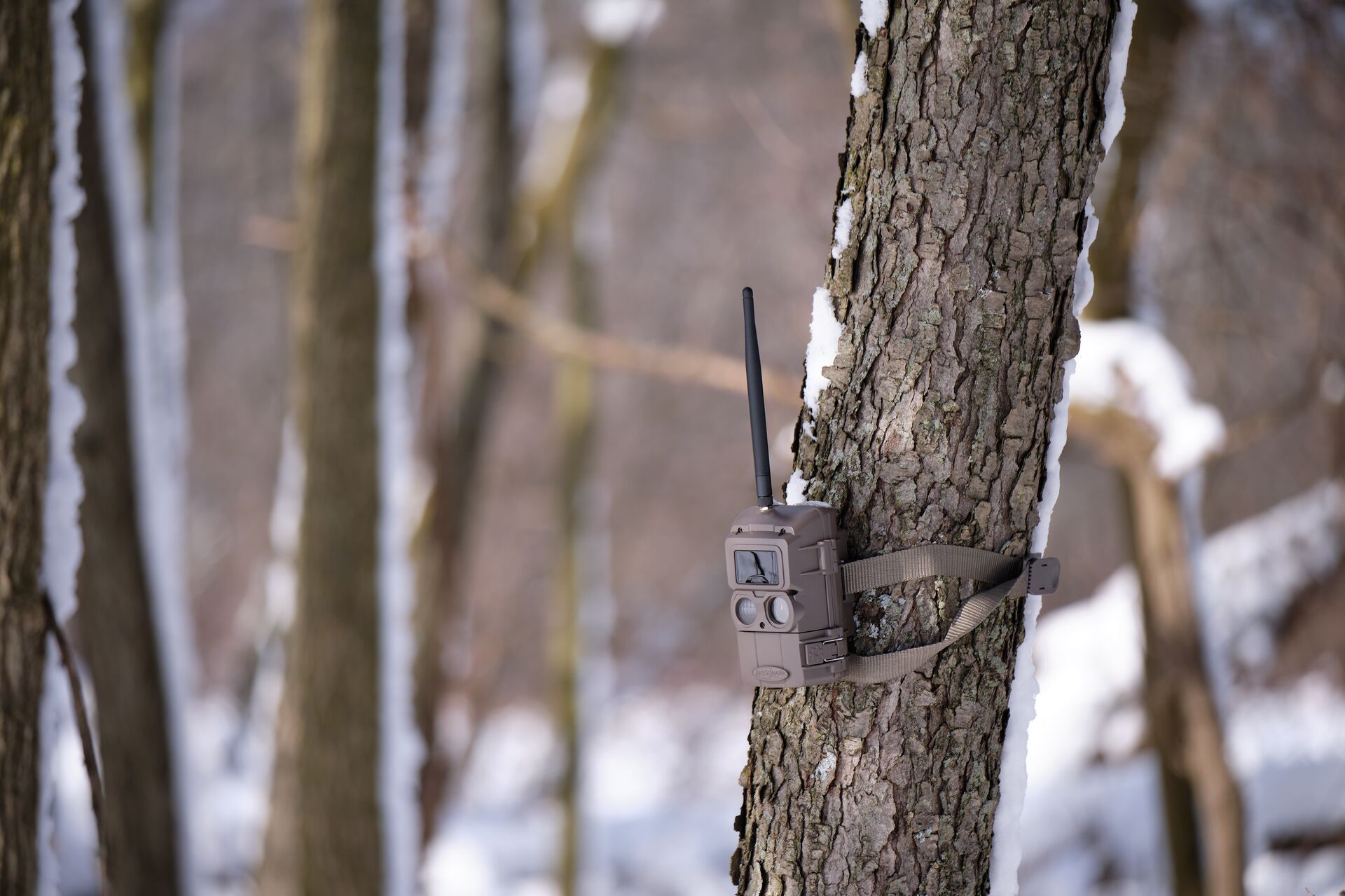
Use Trail Cameras
Unfortunately, many new hunters make the mistake of thinking that simply "placing" a trail camera is enough.
It's not.
To capture insightful imagery, it is essential to select high-potential spots that showcase deer activity. This is where preseason digital and in-person scouting comes into play, as knowing deer signs, tracks, trails, and feeding areas will all indicate potential deer hotspots.
When you see deer activity on your camera, mark it in your HuntWise app, then follow up with some boots-on-the-ground scouting to confirm what you see.
However, if you're not seeing anything on your trail cams, there's a good chance they're not in the right spot to capture deer movement. It's probably wise to find better locations for your cams.
Stand Placement Is Crucial
Up to this point, you should have a good idea of where you're likely to hunt. If you're planning to hunt with a stand, start by marking potential tree stand areas on your HuntWise map to avoid wasting valuable season time looking for where to set up.
Use the HuntWise app to gain insights on winding and the prevailing wind direction (i.e., using WindCast and HuntCast). Consider how the natural corridors and features may impact wind movement.
Always work in natural camouflage wherever possible and ensure a solid line of sight with excellent visibility on the deer passageway.
Know Landowner Boundaries and Private Land Access
The HuntWise app allows you to access detailed private land boundaries and contact information for private landowners. With this feature, you can ensure you know exactly where you are about property lines,
As the Ohio deer season approaches, double-check these boundaries before your hunt to ensure you're in the right spot. Always contact landowners for permission to hunt their land.
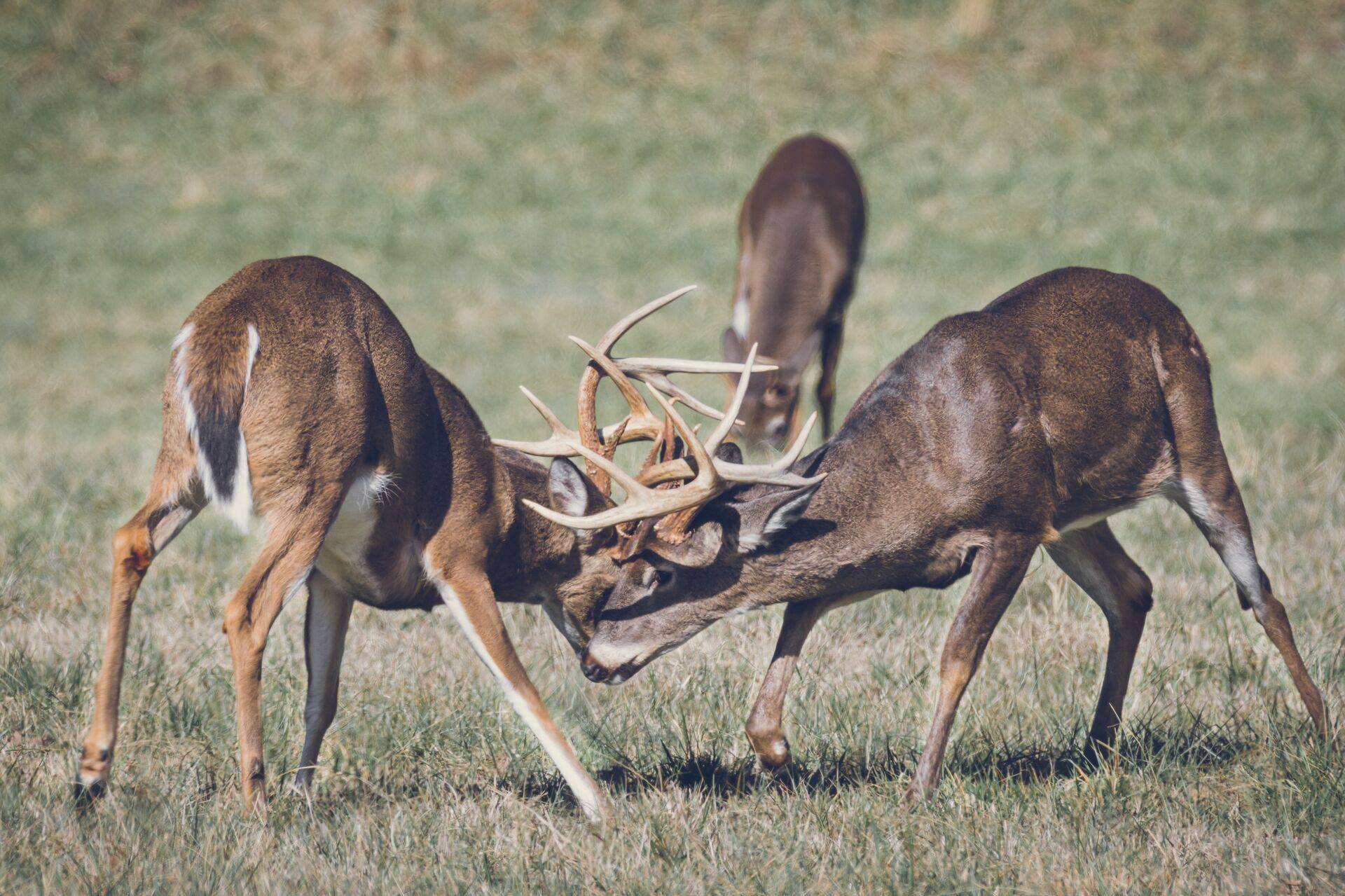
Learn About Deer Behavior
The rut, the deer mating season, is a crucial period marked by a shift in behavior driven by deep biological impulses. Understanding the rut and its various phases empowers hunters to predict deer behavior better and attract more deer, enhancing their hunting experience.
The pre-rut refers to the period before the peak activity and is marked by an increase in buck activity as dominance displays are on show. There may be some early initial breeding attempts. Bucks who had just spent time together forming social groups become more isolated as competition heats up.
The rut is this activity's peak when does come into heat. During this period, bucks actively seek out mates and can become less guarded and single-minded, making it an excellent time for hunters.
During the post-rut, this activity declines, and deer often rest and replenish energy sources by feeding quite heavily. They will return to their usual skittish and survival-based selves.
The rut provides hunters ample opportunity to take a big buck as these deer are less risk-averse and more responsive to calls during this time. The HuntWise Rutcast feature provides hunters with accurate insights into the rutting phases based on scientific research, data, and real-time weather input.
Apply Effective Hunting Techniques
Strategy is one thing, but applying sound hunting techniques is another crucial aspect of a successful hunt during deer season in Ohio. Here are a few things to try when you're in the field.
Calling and Rattling
Calling and rattling are effective ways to lure in a big buck as long as they are deployed at the right moment. You should align your calling strategy with the various rut phases below for the most effective results.
During the pre-rut, focus on buck barks and rattling to stir up and challenge any other males who may feel threatened or that a deer has entered his territory.
Then, during the rut, target solitary bucks by switching tending grunts to trick them into thinking a challenging male is nearby and pursuing a doe; often, the temptation is too much.
Bleats can also draw in does, inevitably bringing in a buck in pursuit wary not to lose her. During the post-rut, you can turn down the intensity by following the same patterning above, targeting does and bucks that are late to mate or falling into a less intense heat cycle.
Scent Control
Deer have highly evolved olfactory capacity. Due to this, scent control is a non-negotiable component of a successful hunt. There's nothing more frustrating than getting winded at the last minute on a huge buck.
The golden rule is always to be downwind of the deer, meaning that if you were looking at it, the wind would be blowing in your face, away from the deer. In addition to this, there are additional strategies that you can apply, including using scent-free detergent on everything you plan to wear while hunting, using scent-killing soap when you shower, and using scent-free deodorant.
Finally, as you hunt, regulate your body temperature to minimize sweating. When you sweat, this fluid breaks down bacteria, which, you guessed it, creates a scent.
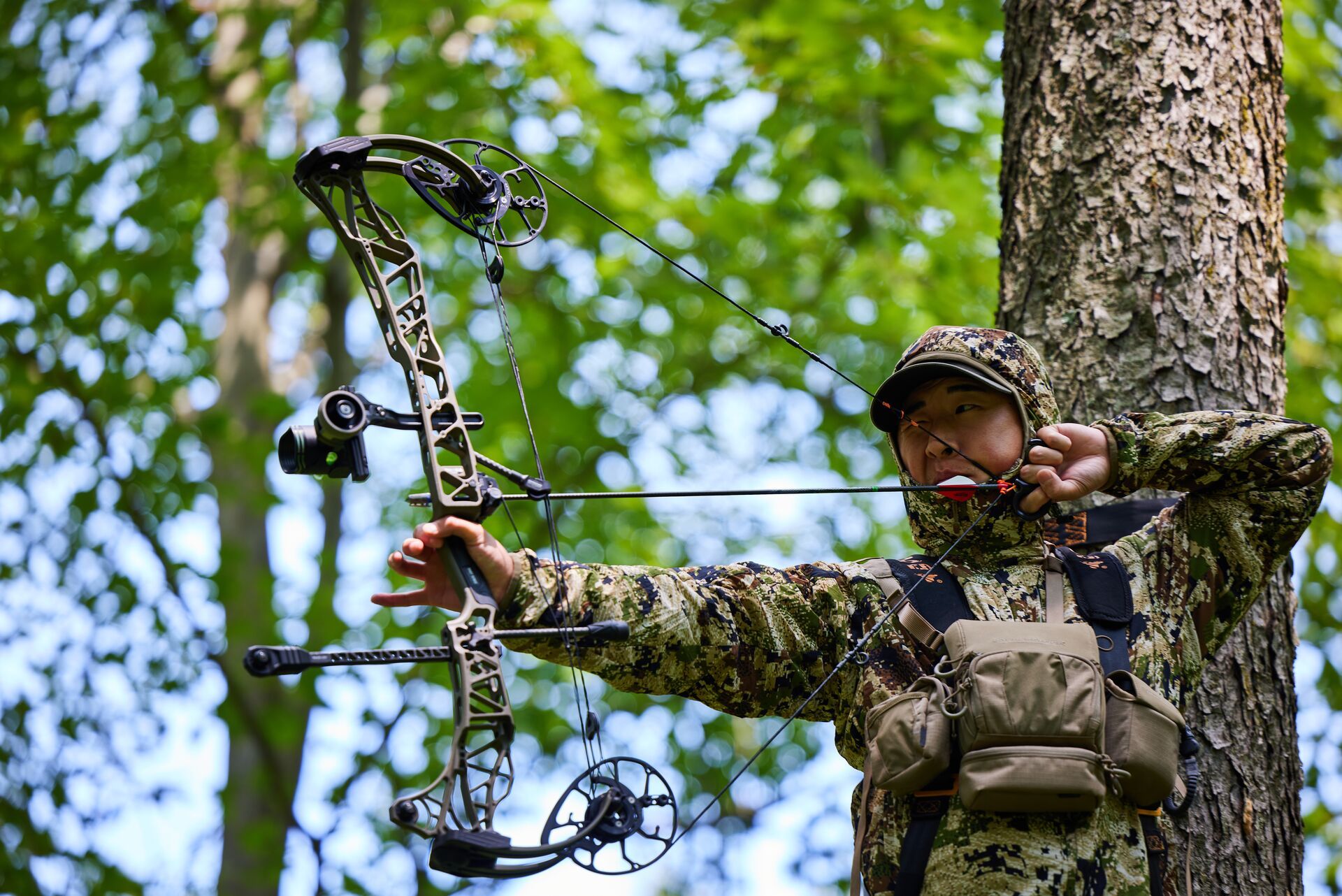
Firearm vs Bow
Whether to hunt with a bow or a firearm will depend on your preference and experience level.
While the bow season may be longer, it won't make much difference if you are not skilled in this firearm type. If you have the means (and time) to train in both fireman types, this will only be for the better.
Bow hunting requires a more advanced level of stealth, and it's a far less forgiving hunting style if you miss your first shot. Bowhunting training should include experience stalking animals to close distance and will require significant target practice.
Conversely, gun hunting allows you to be much further from the animal when taking your shot. This accuracy must be balanced against a more restrictive regulatory framework and often a higher cost of entry.
Watch the Weather
As the season goes on and the weather pattern shifts, comfort becomes an ever-growing concern when hunting in Ohio.
Layering is the name of the game, and moisture-wicking fabric can be a lifesaving strategy. Start with a synthetic skin-tight base layer before moving onto Merino tops, bottoms, and neck warmers, and choose a durable outer layer jacket and pants.
Remember that weather changes can also impact deer movement and patterning, so ensure that you track these changes with the HuntWise app and shift your hunting plan accordingly.
Know Ohio's Tagging Requirements
Deer care doesn't stop after you've taken your shot. Following all tagging and reporting requirements is a necessary component of an ethical hunt.
After the kill, you must report to the kill by 11:30 p.m. on that day. The easiest way to complete this is online via the state's website. This temporary tag must be completed with the date, time, and county of the kill.
Then, after the game has been checked, you will receive a code, which must be attached to the deer and must remain with your deer harvest at all times.
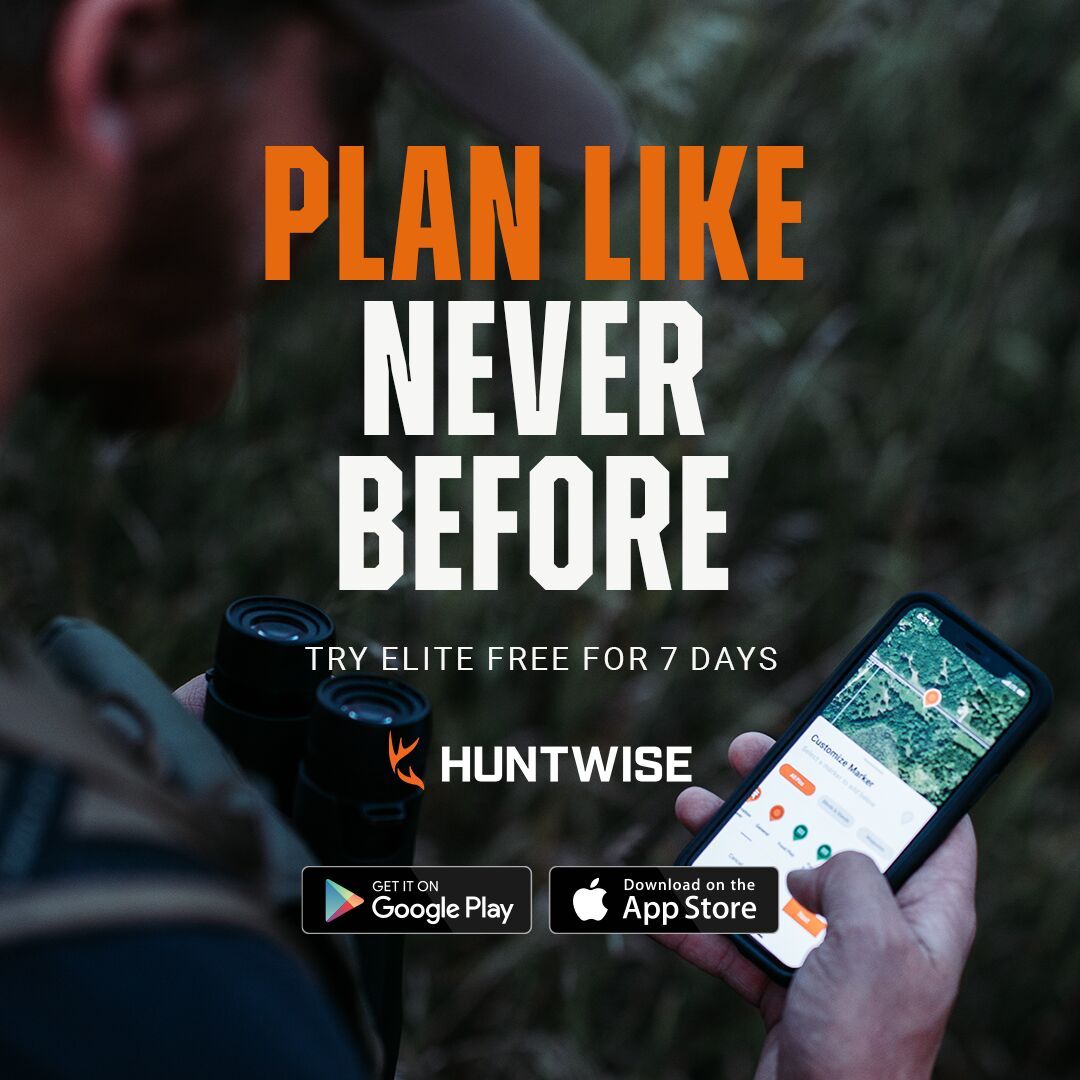
Hunt the Ohio Deer Season With HuntWise
Ohio offers everything a great deer hunt should: a nice balance of seasons, generous bag limits, well-conditioned deer, and plenty of geographical variety to please all deer hunters.
Forming your hunting plan based on accurate data is fundamental. For everything from weather patterns to 3D mapping to knowing precisely when to head out into the field, grab the HuntWise hunting app and explore it using the tips we've mentioned above.
You'll find lots of real-time insights using the HuntCast, WindCast, and RutCast features in the app. You'll also find plenty of map layers to explore potential hunting areas digitally thoroughly — and we'll bet you love our LiDAR layer (Hillshade) from the first time you use it.
Mark what you see and want to explore in person using markers in the app. Share your hunt areas, markers, and notes with your hunting buddies. Then head out for a great deer hunt in Ohio this season!
Download the HuntWise app and try it free for your first week!
More Content Like This
5 Spring Whitetail Habitat Tips for Every Hunter
From scouting to deer habitat activities to shooting your bow, there are some very important deer hunting and deer habitat activities that you need to accomplish in the spring.Read More
Read More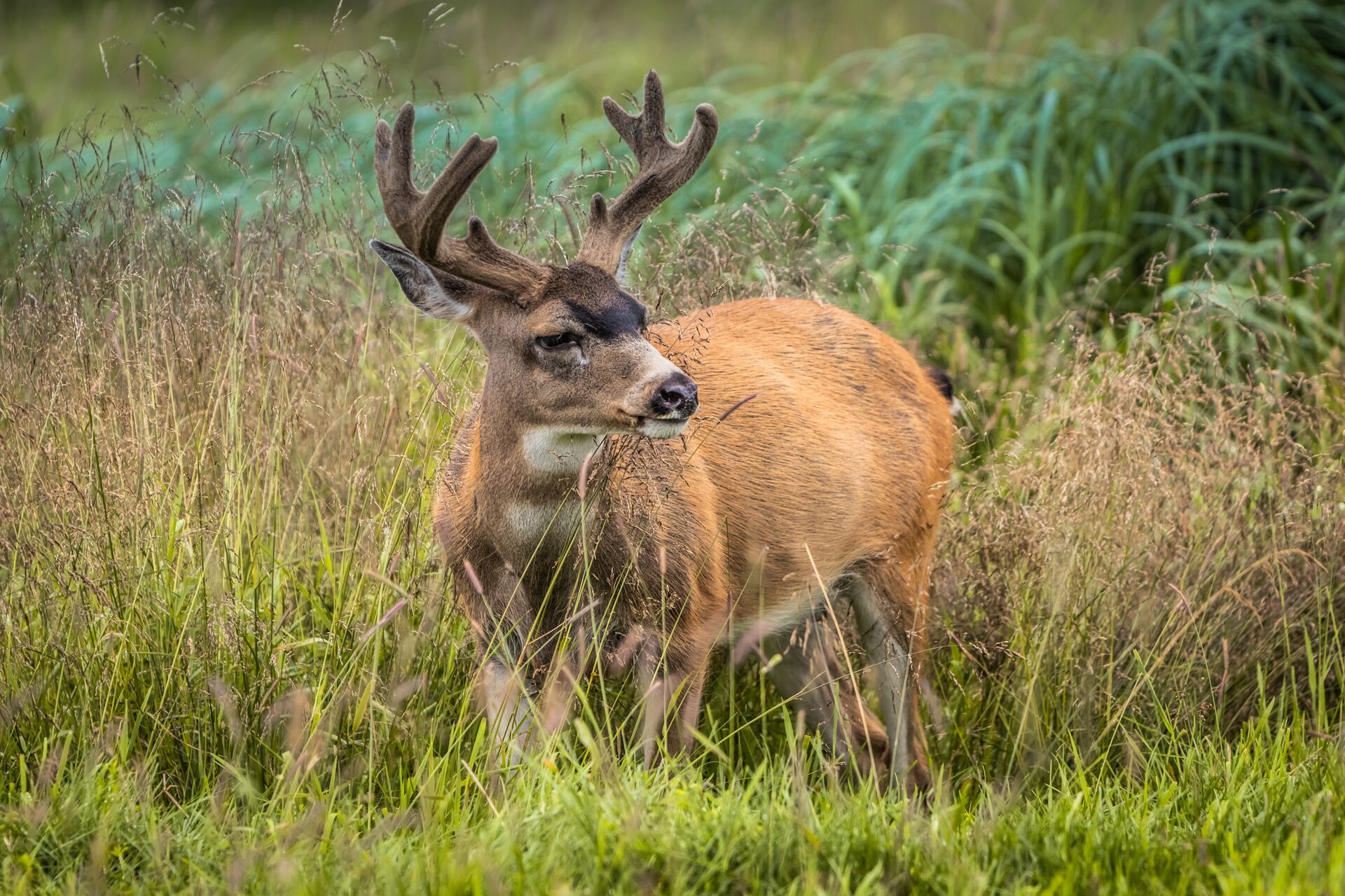
Black Tailed Deer: Where and How To Hunt Them
Wandering old-growth forests searching for ghosts. If you've ever targeted black tailed deer, you'll know exactly what this means. Read More
Read MoreWhen to Start Scouting For Whitetail Deer
When should you start scouting for whitetails? Is it too early to start in the spring? Is the fall too late to get ahead of other hunters? Read More
Read More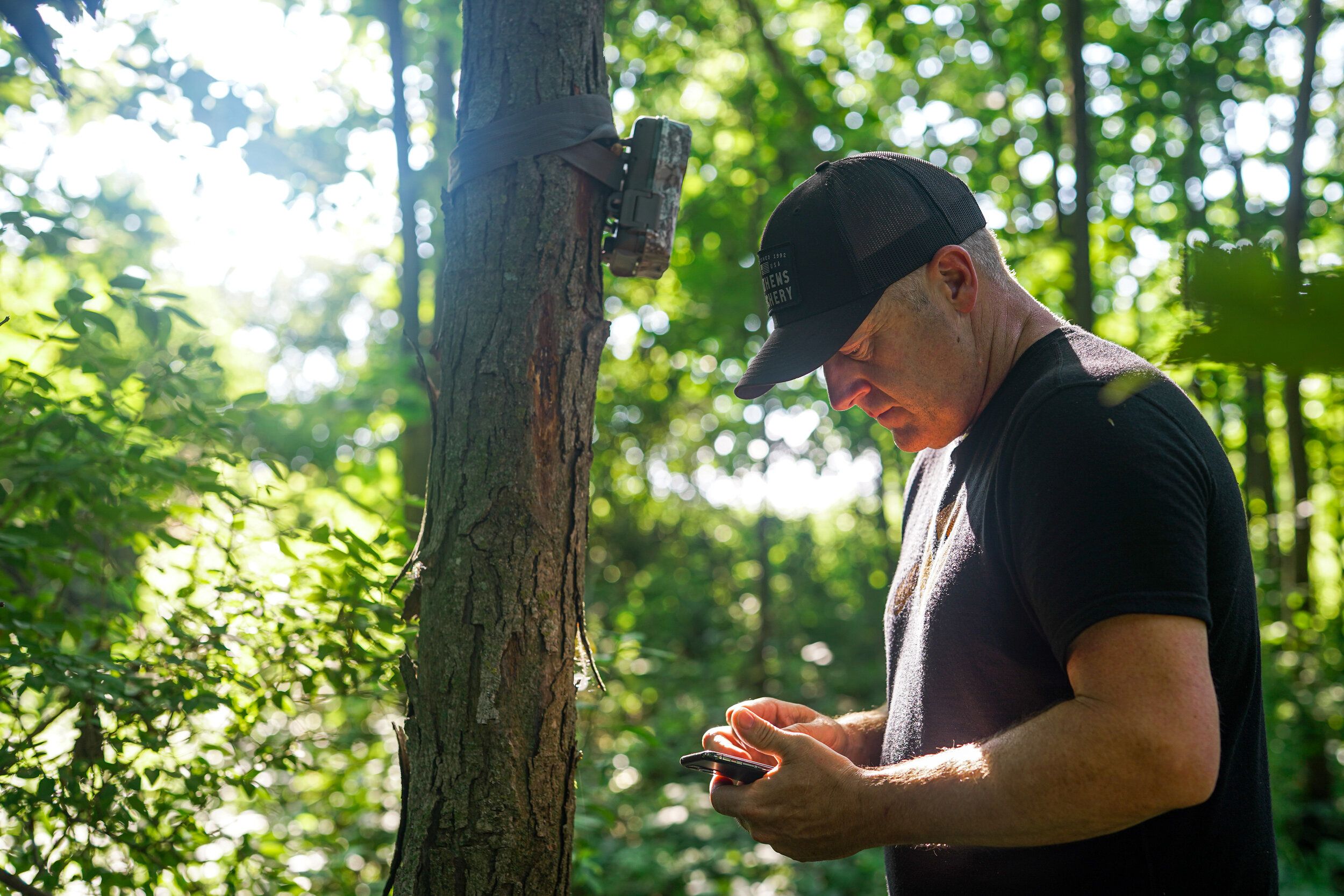 Deer
Deer5 Spring Whitetail Habitat Tips for Every Hunter
By Troy Boehm | 03/29/2024From scouting to deer habitat activities to shooting your bow, there are some very important deer hunting and deer habitat activities that you need to accomplish in the spring.Read More
Read More Deer
DeerBlack Tailed Deer: Where and How To Hunt Them
By Teri Williams | 06/20/2024Wandering old-growth forests searching for ghosts. If you've ever targeted black tailed deer, you'll know exactly what this means. Read More
Read More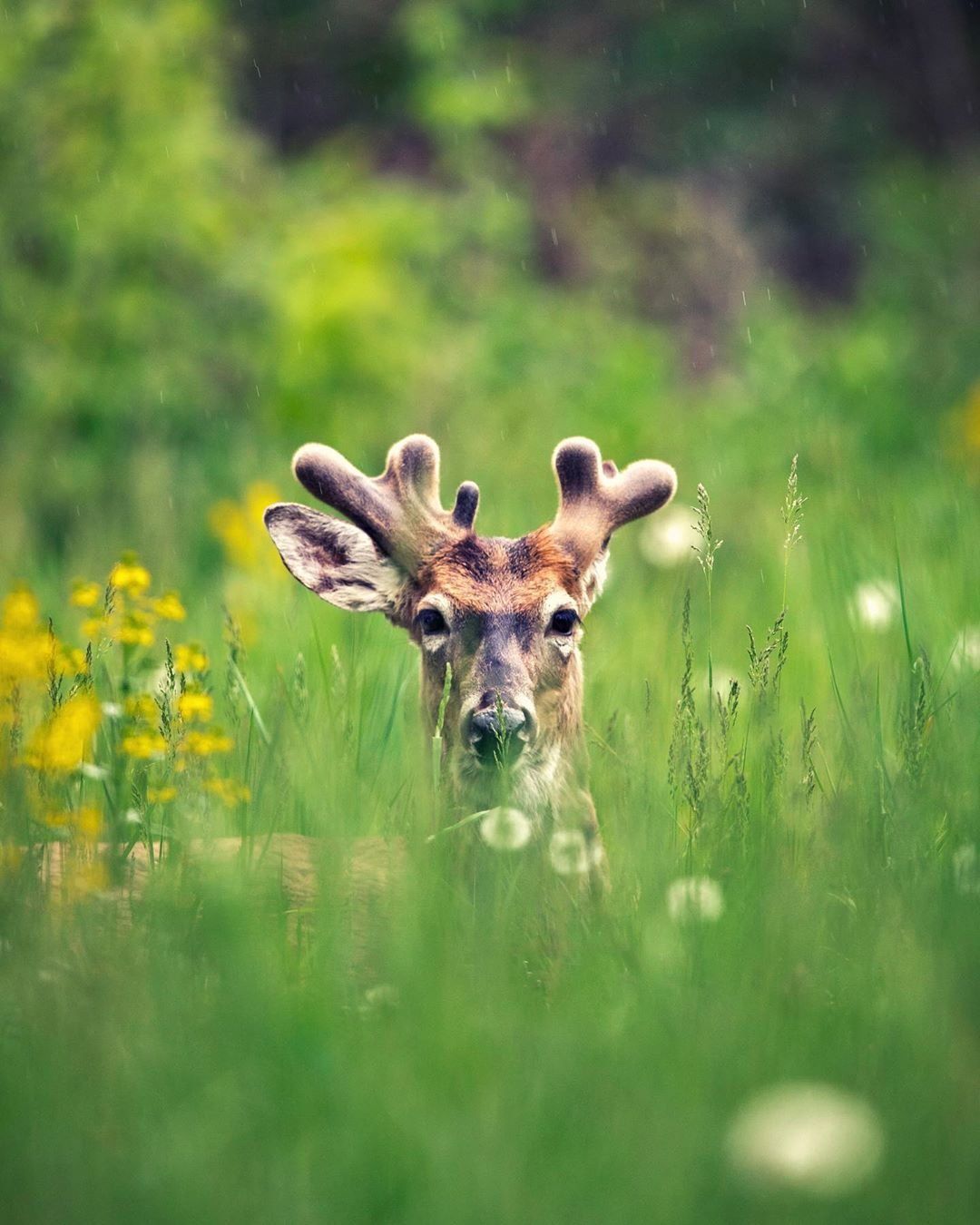 Deer
DeerWhen to Start Scouting For Whitetail Deer
By Melisa Geleott | 05/01/2023When should you start scouting for whitetails? Is it too early to start in the spring? Is the fall too late to get ahead of other hunters? Read More
Read More
1 of 3
